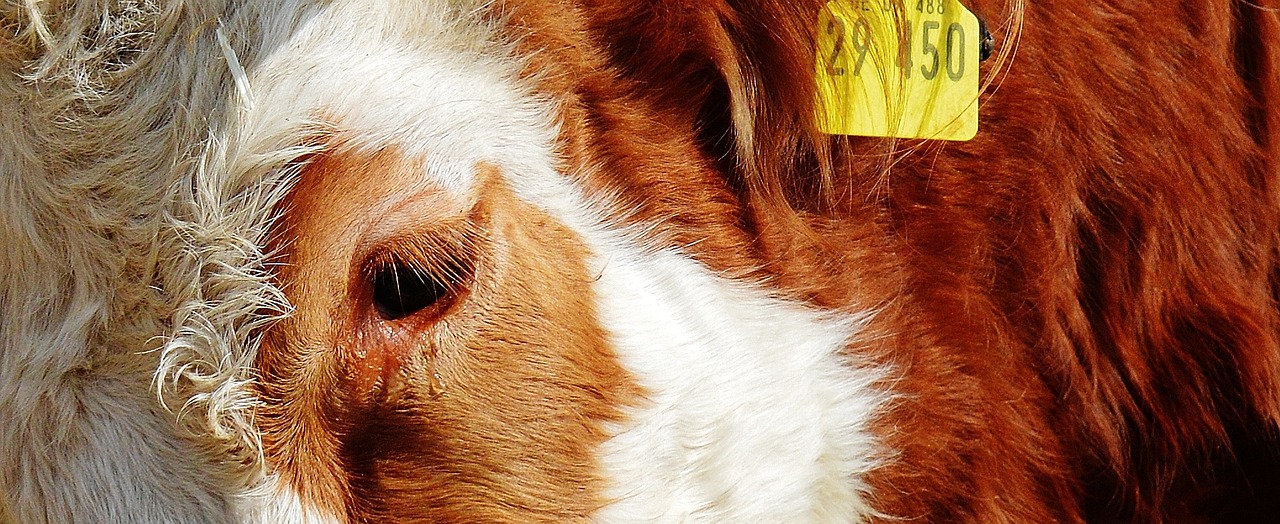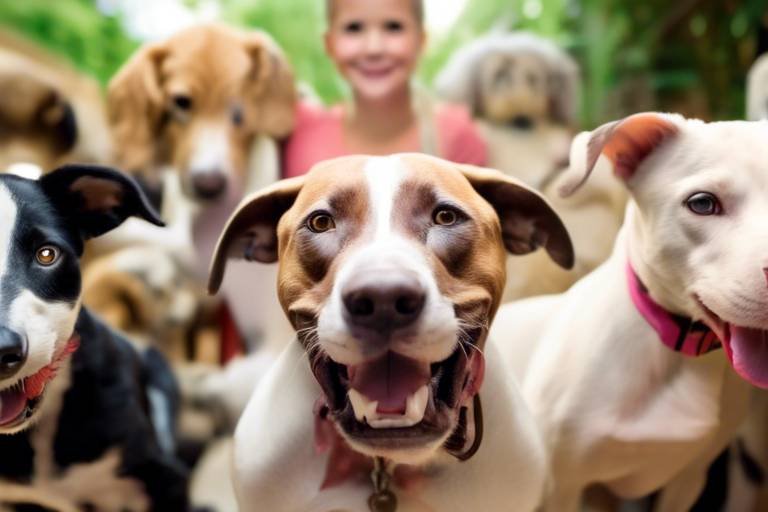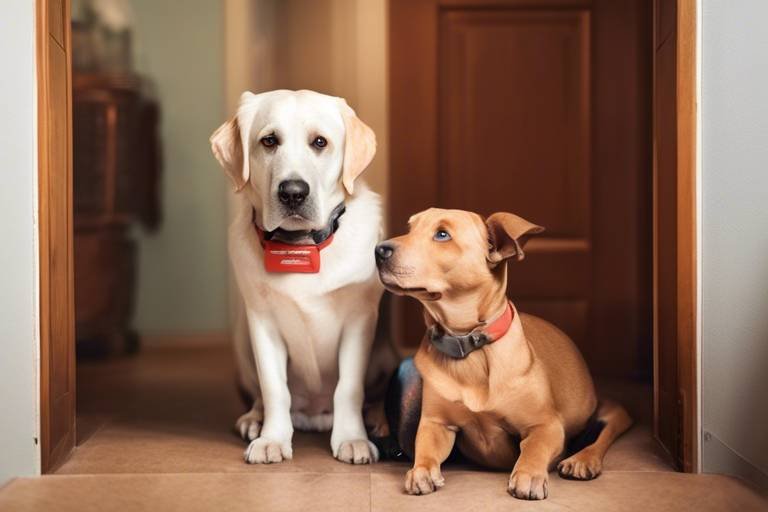How to Utilize Your Skills in Animal Rescue
Animal rescue is not just a noble cause; it’s a calling that resonates with many of us who have a deep-seated love for animals. Have you ever thought about how your unique skills can make a difference in the lives of animals in need? Whether you have a knack for communication, a background in veterinary science, or even skills in event planning, there are countless ways you can contribute to this vital field. The beauty of animal rescue is that it encompasses a wide array of activities, allowing everyone to find their niche. In this article, we will explore how you can leverage your talents to help animals and promote community involvement, making a significant impact in the process.
The first step towards making a difference in animal rescue is understanding your personal strengths. Think about what you are passionate about and how those passions can translate into skills that benefit animals. Are you great with social media? Perhaps you can raise awareness for local shelters. Do you have experience in healthcare? Your knowledge could be invaluable in a veterinary clinic or rehabilitation center. By recognizing your unique abilities, you can effectively apply them in ways that enhance the welfare of animals. Take a moment to jot down your skills—this could include anything from graphic design to public speaking—and consider how they could be utilized in animal rescue efforts.
One of the most rewarding ways to get involved in animal rescue is through volunteering. There are numerous organizations and programs where your time and skills can make a substantial difference. From local shelters to wildlife rehabilitation centers, the opportunities are vast. If you’re wondering where to begin, consider the following:
Many local shelters are always in need of dedicated volunteers. These organizations often have a range of roles available, from hands-on care of the animals to administrative support. If you love spending time with animals, you might find yourself walking dogs, socializing cats, or even helping with adoption events. On the other hand, if you’re more comfortable behind the scenes, you can assist with fundraising efforts or community outreach. The key is to find a shelter that aligns with your skills and passions.
If you possess specialized skills, wildlife rehabilitation centers might be the perfect fit for you. These centers focus on helping injured or orphaned wildlife recover and thrive. Your expertise could be invaluable in various capacities, such as providing medical care, conducting research, or even educating the public about local wildlife. Imagine being part of a team that helps a baby bird take its first flight or nurses a deer back to health!
Raising funds and awareness is crucial for animal rescue organizations to continue their work. If you have a flair for creativity, you can utilize your skills to create impactful campaigns. This might involve organizing fundraising events, designing promotional materials, or even setting up online donation platforms. The more engaging and informative your campaigns are, the more likely you are to draw in support from the community.
In today’s digital age, social media is a powerful tool for spreading awareness. Using platforms like Facebook, Instagram, and Twitter, you can share stories of animals in need, promote adoption events, and educate your followers about responsible pet ownership. Consider creating a dedicated page for your local shelter or wildlife center to keep the community informed and engaged. Remember, every share can lead to a new supporter or a forever home for an animal!
Organizing events can significantly boost fundraising efforts. If you have experience in event planning, why not put those skills to good use? You could host a charity walk, a pet adoption day, or even a gala dinner. The possibilities are endless! Successful events not only raise funds but also foster community spirit and awareness about animal welfare.
Educating the community about animal welfare is essential for creating a compassionate society. You can share your knowledge and skills to promote responsible pet ownership and animal care. This could involve conducting workshops, creating informative brochures, or giving presentations at schools and community centers.
Conducting workshops can empower others to take action. By designing and implementing educational programs, you can inform the public about animal rescue and care. Whether it’s teaching people how to handle stray animals or discussing the importance of spaying and neutering, your efforts can lead to a more informed and compassionate community.
Engaging with schools can foster compassion for animals from a young age. Developing programs that teach students about animal welfare and the importance of rescue efforts can have a lasting impact. Imagine inspiring the next generation of animal advocates! By collaborating with educators, you can create a curriculum that emphasizes empathy and responsibility towards animals.
- What skills are most valuable in animal rescue? Skills in communication, veterinary care, event planning, and social media marketing are highly valuable.
- How can I find volunteering opportunities? Check with local shelters, wildlife rehabilitation centers, or online platforms that connect volunteers with organizations.
- Can I volunteer without any specific skills? Absolutely! Many organizations welcome general volunteers for various tasks.

Identifying Your Skills
Understanding your personal strengths is crucial in animal rescue. It’s like finding the right puzzle piece that completes the picture. Each of us has unique abilities, and recognizing these can significantly enhance our contributions to animal welfare. So, how do you identify your skills? Start by reflecting on your experiences and interests. Are you a natural communicator? Maybe you excel in organization or have a knack for social media? These skills can be invaluable in the world of animal rescue.
To further clarify your strengths, consider asking yourself these questions:
- What activities do I enjoy the most?
- What skills do I possess that others often compliment?
- How can my professional background contribute to animal rescue?
For instance, if you are a veterinarian or a veterinary technician, your medical expertise can directly impact the health and recovery of animals in shelters or rehabilitation centers. On the other hand, if you have a marketing background, you could help raise awareness and funds through effective campaigns. The beauty of animal rescue is that there’s a role for everyone, regardless of their professional background.
It’s also essential to evaluate your soft skills. Empathy, patience, and teamwork can be just as important as technical skills. Imagine working with a frightened animal; your ability to remain calm and compassionate can make a world of difference in its recovery. Therefore, take a moment to jot down your skills, both hard and soft. You might be surprised at how many you have!
Once you’ve identified your skills, think about how you can apply them. Here’s a simple table to help you visualize the connection between your skills and potential roles in animal rescue:
| Your Skill | Potential Role in Animal Rescue |
|---|---|
| Veterinary Skills | Animal Care and Treatment |
| Social Media Expertise | Awareness Campaigns |
| Event Planning | Fundraising Events |
| Teaching Skills | Workshops and Educational Programs |
Ultimately, identifying your skills is just the first step. The real magic happens when you combine your strengths with your passion for animal rescue. By doing so, you not only enhance your own life but also make a significant impact on the lives of countless animals in need. So, roll up your sleeves and get ready to dive into the rewarding world of animal rescue!

Volunteering Opportunities
When it comes to animal rescue, the need for passionate individuals is greater than ever. Volunteering your time and skills can make a significant difference in the lives of countless animals. Whether you're an animal lover, a skilled organizer, or a social media whiz, there are numerous ways to get involved. The beauty of volunteering is that you can tailor your efforts to your unique strengths, creating a fulfilling experience for both you and the animals you help.
First and foremost, local shelters are often the backbone of animal rescue in communities. These organizations are typically in constant need of volunteers to assist with daily operations. You might find yourself walking dogs, cleaning kennels, or helping with adoption events. Each task, no matter how small, contributes to the overall welfare of the animals. Imagine walking a dog that has been waiting for a forever home; your time and attention could be the spark that helps them find a loving family!
In addition to shelters, wildlife rehabilitation centers offer another avenue for volunteering. These facilities require individuals with specialized skills, such as veterinary knowledge, animal behavior understanding, or even basic first aid. If you have experience working with wildlife or a background in biology, your expertise could be invaluable in helping injured or orphaned animals recover. For instance, caring for a baby bird or nursing a raccoon back to health can be incredibly rewarding, allowing you to witness the direct impact of your efforts.
Moreover, many organizations host events throughout the year, and they often seek volunteers to help with planning and execution. From fundraising galas to community outreach days, your organizational skills can shine brightly. If you're someone who enjoys event planning, consider reaching out to local animal rescue groups to see where you can lend a hand. Your creativity and enthusiasm could lead to a successful event that raises much-needed funds for these vital organizations.
To summarize, volunteering in animal rescue is not only about giving your time; it's about leveraging your skills to create a positive impact. Whether you’re working hands-on with animals in shelters or using your organizational prowess to plan fundraising events, every effort counts. The joy of knowing you are part of a larger mission to save and protect animals can be incredibly fulfilling. So, why not take the plunge and explore the various volunteering opportunities available in your area? You might just find your new passion!
- What skills are most valuable in animal rescue volunteering? While a love for animals is essential, skills in organization, communication, and social media can greatly enhance your contribution.
- Do I need prior experience to volunteer? Many organizations provide training, so prior experience isn't always necessary. However, specific roles may require certain skills or knowledge.
- How much time do I need to commit? This varies by organization. Some may require a few hours a week, while others might have more flexible options.
- Can I volunteer with my children? Many shelters and organizations welcome family volunteering, but it's best to check their age requirements.
Local Shelters
When it comes to animal rescue, are often the front lines of compassion and care. These organizations work tirelessly to provide a safe haven for animals in need, from abandoned pets to strays. If you’ve ever wondered how you can make a tangible difference in your community, volunteering at a local shelter is a fantastic way to utilize your skills. Whether you’re a natural with animals or have administrative talents, there’s a role for everyone.
First, let’s explore the various ways you can get involved. Many shelters are in constant need of volunteers to help with daily operations. This could mean anything from walking dogs and socializing cats to assisting with adoption events. If you’re an animal lover, imagine the joy of spending time with these furry friends while also making a difference in their lives!
But it’s not just about direct animal care. Local shelters also require support in areas like marketing, fundraising, and community outreach. If you have skills in graphic design, for instance, you could help create eye-catching flyers to promote adoption events. Or, if you excel at organizing, you might coordinate donation drives or community events to raise awareness and funds for the shelter.
Here’s a quick overview of some roles you might consider:
- Animal Care Volunteer: Spend time with animals, helping them feel loved and cared for.
- Administrative Support: Assist with paperwork, data entry, and scheduling.
- Event Coordinator: Plan and execute fundraising events to support shelter operations.
- Social Media Manager: Use your digital skills to promote the shelter’s mission online.
Each of these roles plays a vital part in the shelter's success. For example, the more volunteers that help with animal care, the more time staff can dedicate to finding homes for the animals. This ripple effect can lead to higher adoption rates and better outcomes for the animals in their care.
Before you dive in, it’s a good idea to reach out to your local shelter and inquire about their specific needs. Many shelters have orientation sessions for new volunteers, where you can learn about their mission, meet the staff, and find out how to best contribute. It’s an excellent opportunity to ask questions and understand the unique challenges they face.
In conclusion, local shelters are a hub of activity and a beacon of hope for countless animals. By volunteering your time and skills, you’re not just helping the animals; you’re also enriching your own life and fostering a sense of community. So, why not take that leap and see how your unique talents can shine in the world of animal rescue?
Wildlife Rehabilitation Centers
Wildlife rehabilitation centers play a crucial role in the conservation and recovery of injured, sick, or orphaned wild animals. These facilities not only provide immediate care but also focus on the long-term goal of returning these creatures to their natural habitats. If you have specialized skills or a passion for wildlife, getting involved with these centers can be incredibly rewarding. Imagine the satisfaction of seeing a once-injured bird take flight again, or a young deer returning to the wild after receiving the care it desperately needed!
To contribute effectively, it's essential to understand the various roles available at wildlife rehabilitation centers. These roles can range from hands-on animal care to administrative support and educational outreach. For instance, if you have a background in veterinary medicine, your expertise could be invaluable in treating animals. On the other hand, if you excel in communication, you might help raise awareness about the center's work through social media or community events.
Here’s a quick look at some of the skills that can make a difference in wildlife rehabilitation:
- Veterinary Skills: If you're a vet or have veterinary training, you can assist in medical care and rehabilitation.
- Animal Handling: Experience with handling animals safely is crucial, especially for those working directly with wildlife.
- Education and Outreach: Skills in public speaking and teaching can help spread awareness about wildlife conservation.
- Fundraising: If you have a knack for organizing events or campaigns, you can help secure the funds necessary for operations.
Additionally, many wildlife rehabilitation centers rely on volunteers to help with day-to-day tasks. This could include feeding animals, cleaning enclosures, or assisting with educational programs. Even if you don’t have specialized skills, your willingness to lend a hand can make a significant impact. Think of it as being part of a larger family dedicated to giving wildlife a second chance at life!
Moreover, wildlife rehabilitation centers often offer training programs for volunteers. These programs can equip you with the knowledge and skills needed to work effectively with wildlife. You’ll learn about the specific needs of various species, how to handle them safely, and the best practices for rehabilitation. This training not only enhances your skills but also deepens your understanding of the challenges faced by wildlife today.
In summary, wildlife rehabilitation centers are a fantastic avenue for anyone looking to make a difference in the lives of animals. By identifying your skills and finding the right role, you can contribute to the noble cause of wildlife recovery. Whether you’re nursing a baby raccoon back to health or educating the community about the importance of animal welfare, your efforts can lead to powerful changes in the lives of these creatures. So, why not take that step today? Your skills could be the key to saving a life!
1. What types of animals do wildlife rehabilitation centers care for?
Wildlife rehabilitation centers typically care for a wide range of species, including birds, mammals, reptiles, and amphibians. Each center may specialize in certain types of animals based on their location and resources.
2. Do I need special training to volunteer at a wildlife rehabilitation center?
While some roles may require specialized training, many centers offer training programs for volunteers. A willingness to learn and a passion for wildlife are often the most important qualifications.
3. How can I support wildlife rehabilitation centers if I can't volunteer?
If you’re unable to volunteer your time, consider supporting these centers through donations, fundraising events, or by spreading the word about their work on social media.
4. What are the common challenges faced by wildlife rehabilitation centers?
Common challenges include funding shortages, limited space for animals, and the need for specialized care for certain species. Awareness and community support can help mitigate these issues.

Fundraising and Awareness Campaigns
When it comes to animal rescue, are the lifeblood that keeps these noble efforts alive. Imagine trying to save a stranded puppy or rehabilitate a wounded bird without the necessary resources; it’s like trying to build a house without bricks. Your skills can play a pivotal role in not only raising the funds but also in spreading the word about the importance of animal welfare. So, how can you contribute? Let’s dive into some exciting ways you can make a difference!
First off, think about what you’re good at. Are you a whiz at graphic design? Perhaps you can create eye-catching flyers or social media posts that grab attention. If you have a knack for writing, why not craft compelling stories that highlight the plight of animals in need? Sharing these stories can tug at heartstrings and encourage people to open their wallets. Remember, people connect with stories, and your unique voice can inspire them to act!
Additionally, organizing fundraising events can be a fantastic way to rally the community. Whether it’s a bake sale, a fun run, or a charity auction, your planning skills can turn a simple idea into a successful event. Think of it as orchestrating a symphony where each note contributes to the overall harmony of helping animals. For instance, you could set up a table at a local fair to sell homemade treats, with all proceeds going to your favorite animal rescue organization. Not only does this raise funds, but it also raises awareness among attendees who might not be familiar with the cause.
| Event Type | Description | Potential Impact |
|---|---|---|
| Bake Sale | Sell homemade goods to raise money. | Fosters community spirit and raises funds. |
| Charity Auction | Auction off donated items or services. | Generates significant funds and raises awareness. |
| Fun Run | Organize a running event where participants pay to join. | Encourages fitness and community involvement while raising funds. |
Moreover, don’t underestimate the power of social media advocacy. In today’s digital age, platforms like Instagram, Facebook, and Twitter can amplify your message to a vast audience. Create engaging posts, share impactful videos, or even host live sessions where you discuss animal welfare topics. The key is to be consistent and authentic in your messaging. By sharing facts, personal experiences, and urgent calls to action, you can turn your followers into passionate advocates for animal rescue.
Lastly, consider partnering with local businesses. Many companies are eager to support community initiatives and may be willing to donate a portion of their sales to your cause or sponsor an event. It’s a win-win situation: they gain positive publicity, and you gain much-needed funds. This collaborative effort can create a ripple effect, inspiring others to join the cause.
In conclusion, fundraising and awareness campaigns are not just about collecting money; they are about creating a movement that unites people for a common cause. By leveraging your skills and creativity, you can make a significant impact in the world of animal rescue. So, what are you waiting for? Dive in, get involved, and let your passion for animals shine through!
- How can I start my own fundraising campaign for animal rescue? Begin by identifying your strengths and interests, then choose an event type that resonates with you. Create a plan, gather support, and promote it through social media and local networks.
- What are some effective ways to raise awareness for animal rescue? Utilize social media, host community events, share compelling stories, and engage with local businesses to spread the word.
- Can I volunteer my skills without direct interaction with animals? Absolutely! Many organizations need help with fundraising, marketing, event planning, and educational outreach.
Social Media Advocacy
In today's digital age, social media has become an incredibly powerful tool for advocacy, especially in the realm of animal rescue. Imagine having the ability to reach thousands, if not millions, of people with just a few clicks. That's the magic of platforms like Facebook, Instagram, Twitter, and TikTok! Whether you're sharing a heartwarming story about a rescue animal or promoting an upcoming adoption event, your online presence can make a significant impact.
First, consider the type of content that resonates with your audience. Engaging visuals, such as photos and videos of animals in need, can tug at heartstrings and inspire action. For instance, a short video showcasing a rescued puppy's journey from the shelter to its forever home can be both emotional and motivating. Use captions that tell a story, and don’t forget to include a call to action—like encouraging viewers to adopt, foster, or donate.
Furthermore, collaborating with local animal rescue organizations can amplify your reach. By partnering with these groups, you can share their posts, help promote their events, and even host joint campaigns. This not only strengthens community ties but also increases the visibility of the cause. You might ask, “How can I collaborate?” Here are a few ideas:
- Share their success stories on your profile.
- Host a live Q&A session with a rescue organization.
- Create a challenge that encourages followers to donate or volunteer.
Moreover, utilizing relevant hashtags can significantly boost your posts' visibility. Think about popular tags like #AdoptDontShop or #RescueAnimals. These hashtags can help you connect with like-minded individuals and organizations who are equally passionate about animal welfare. It’s like being part of a massive online community that shares your values and goals.
But wait, there’s more! Engaging with your audience is key. Respond to comments, ask questions, and encourage discussions. When people feel connected to your cause, they are more likely to share your content and spread the word. You might even consider running polls or quizzes related to animal welfare to keep your audience engaged and informed.
Lastly, remember to track your social media efforts. Use analytics tools to see what types of posts perform best. This data can guide your future content strategy, ensuring you maximize your impact. By understanding what resonates with your audience, you can fine-tune your approach and continue to advocate effectively for animal rescue.
In conclusion, social media advocacy is not just about posting cute animal pictures; it's about building a community, sharing stories that matter, and inspiring others to take action. So, grab your phone, tap into your creativity, and start making a difference—one post at a time!
Event Planning
When it comes to supporting animal rescue organizations, can be a game-changer. Imagine transforming your love for animals into a vibrant community gathering that not only raises funds but also spreads awareness. Whether it's a charity gala, a fun run, or a simple bake sale, your organizational skills can help create an event that captures the hearts of many. But how do you get started? First, consider the type of event that would resonate most with your community. Do you envision a family-friendly day at the park, or perhaps a more formal evening event? The possibilities are endless!
Once you have a concept in mind, the next step is to assemble a team. Rally friends, family, or fellow animal lovers who share your passion. Having a dedicated team can make the planning process more enjoyable and less daunting. You can delegate tasks based on individual strengths, ensuring that everyone feels valued and engaged. For instance, if someone is a whiz at social media, let them handle the online promotion, while another can focus on logistics like venue selection and catering.
Next, let’s talk about logistics. A well-structured plan is vital for a successful event. Here’s a simple checklist to keep you on track:
- Set a date: Choose a day that doesn’t conflict with major local events.
- Budget: Outline your expenses and potential income. Be realistic!
- Venue: Secure a location that’s accessible and fits your event’s theme.
- Permits: If necessary, acquire permits for public gatherings.
- Promotion: Use social media, flyers, and local news to spread the word.
- Engagement: Plan activities that will engage attendees, like raffles or guest speakers.
Now, let’s not forget about the fundraising aspect. It’s crucial to have a clear strategy on how you intend to raise money during the event. This could be through ticket sales, donations, or auctioning off items donated by local businesses. Consider creating a
| Sponsorship Level | Benefits |
|---|---|
| Gold | Logo on all promotional materials, booth at event, and shout-out during the event. |
| Silver | Logo on select promotional materials and booth at event. |
| Bronze | Logo on event website and social media mentions. |
Finally, after the event, take a moment to reflect on what worked well and what could be improved for next time. Gathering feedback from attendees can provide valuable insights. Plus, don’t forget to thank everyone involved, from volunteers to sponsors. A heartfelt thank-you can go a long way in building lasting relationships for future events!
In essence, event planning for animal rescue can be a fulfilling way to channel your skills into something that truly makes a difference. With careful planning, a passionate team, and a clear goal, you can create an event that not only raises funds but also raises awareness about the importance of animal welfare in your community.
Q: How can I find volunteers for my event?
A: Utilize social media platforms, local community boards, and animal rescue groups to reach out for volunteers. You can also post on community event websites.
Q: What types of events work best for fundraising?
A: Events like charity auctions, fun runs, bake sales, and pet adoption days are popular and effective for raising funds and awareness.
Q: How can I promote my event effectively?
A: Leverage social media, create eye-catching flyers, and collaborate with local businesses to spread the word. Engaging local media can also help gain exposure.

Educational Outreach
When it comes to animal rescue, plays a pivotal role in shaping community attitudes and behaviors towards animals. It’s not just about saving animals; it’s about creating a culture of compassion and responsibility. By sharing your knowledge and skills, you can empower others to make a difference in the lives of animals. Imagine being the spark that ignites someone’s passion for animal welfare! Whether you're an expert in animal care, a veterinarian, or simply a passionate advocate, your insights can help foster a more humane society.
One of the most impactful ways to engage the community is through workshops and seminars. These events allow you to share valuable information on topics such as responsible pet ownership, the importance of spaying and neutering, and how to recognize signs of animal distress. By creating a welcoming environment where people can ask questions and share their experiences, you can build a community that is informed and proactive about animal welfare. For instance, you could host a workshop that covers:
| Workshop Topic | Description |
|---|---|
| Responsible Pet Ownership | Discuss the responsibilities that come with having a pet, including nutrition, exercise, and regular veterinary care. |
| Understanding Animal Behavior | Teach participants how to interpret animal behavior to improve interactions and reduce stress for pets. |
| First Aid for Pets | Provide essential first aid tips and techniques in case of emergencies. |
Moreover, engaging with local schools can be a game-changer in promoting animal welfare. By developing educational programs tailored for students, you can instill a sense of empathy and responsibility towards animals from a young age. Imagine a classroom full of eager students learning about the importance of animal rescue and how they can contribute! Activities could include interactive presentations, art projects centered around animal themes, or even field trips to local shelters. These experiences not only educate but also inspire the next generation to take action.
In addition to workshops and school programs, consider collaborating with local organizations to expand your reach. Partnering with community centers, libraries, or even businesses can provide a platform for broader engagement. You can create informative pamphlets, host community discussions, or even set up booths at local events to share your message. The more people you reach, the greater the impact you’ll have on animal welfare.
Ultimately, educational outreach is about building connections and fostering a community dedicated to the well-being of animals. By sharing your passion and knowledge, you can help shift perspectives and encourage more people to get involved in animal rescue efforts. Remember, every small step counts, and your contributions can lead to significant changes in the lives of countless animals.
- What types of educational programs can I offer? You can offer workshops, seminars, and school programs focused on various topics related to animal care and welfare.
- How can I engage with local schools? Reach out to schools with proposals for interactive programs that educate students about responsible pet ownership and animal welfare.
- What resources can I use for creating educational materials? Consider using online resources, local animal welfare organizations, and veterinary professionals to gather accurate and informative content.
- How can I measure the impact of my outreach efforts? Collect feedback through surveys and engage participants in discussions to assess what they learned and how they plan to apply it.
Workshops and Seminars
Conducting workshops and seminars is a powerful way to share knowledge and empower individuals in your community about animal welfare. Imagine transforming a simple gathering into a hub of learning, where participants leave with not just information, but also with the motivation to make a difference. By sharing your expertise, you can inspire others to take action, whether it’s adopting a pet, volunteering, or simply spreading awareness.
When planning these events, consider focusing on topics that resonate with your audience. For example, you might cover essential subjects such as:
- The importance of spaying and neutering pets
- How to recognize signs of animal distress or neglect
- Basic first aid for pets
- Understanding animal behavior and communication
Hosting a workshop doesn’t have to be daunting! Start by selecting a venue that can accommodate your audience comfortably. Local community centers, libraries, or even parks can serve as great locations. Next, promote your event through social media, flyers, and community boards. The more people you reach, the greater the impact you can have!
During the workshop, engage participants with interactive activities. For instance, you could conduct role-playing scenarios that simulate real-life situations involving animal rescue or care. This approach not only makes learning fun but also helps solidify the information in participants' minds. Don't forget to provide handouts or resources that attendees can take home, ensuring they have materials to refer back to later.
Moreover, consider inviting guest speakers from local animal shelters or veterinary clinics. Their firsthand experiences and stories can add a layer of authenticity and inspiration that resonates deeply with attendees. These connections can also lead to future collaborations, enhancing the community’s overall efforts in animal rescue.
In conclusion, workshops and seminars are invaluable tools for fostering a culture of compassion and responsibility toward animals. By sharing your skills and knowledge, you can ignite a passion for animal welfare in others, creating a ripple effect that benefits countless animals in need.
Q: How do I organize a workshop on animal welfare?
A: Start by choosing a relevant topic, select a suitable venue, promote the event, and prepare engaging materials. Collaborate with local experts to enhance the experience.
Q: What age group should I target for these workshops?
A: It's beneficial to target various age groups, including children, adults, and seniors. Tailor your content to suit each demographic's understanding and interests.
Q: How can I measure the success of my workshop?
A: Collect feedback through surveys after the event, track engagement levels during the workshop, and observe any increase in community involvement in animal welfare initiatives.
School Programs
Engaging with schools is a powerful way to foster a sense of compassion and responsibility towards animals among young minds. By developing tailored programs that resonate with students, you can instill a love for animal welfare and educate them about the importance of rescue efforts. Imagine walking into a classroom filled with eager faces, ready to absorb knowledge about the furry friends that share our world. What better way to make a lasting impact than to equip these future generations with the understanding and tools they need to advocate for animals?
When creating school programs, it’s essential to consider the age group and interests of the students. Younger children may respond well to interactive activities, while older students might appreciate more in-depth discussions and projects. Here are some ideas to get you started:
- Interactive Workshops: Organize hands-on activities where students can learn about animal care, the importance of spaying and neutering, and how to recognize signs of distress in animals.
- Guest Speakers: Invite local veterinarians, animal rescue workers, or wildlife rehabilitators to share their experiences and insights. This not only provides valuable information but also inspires students to get involved.
- Art and Writing Contests: Encourage creativity by hosting contests where students can express their thoughts about animal welfare through art or essays. This can be a fun way to engage them while also promoting awareness.
Moreover, integrating animal welfare topics into existing subjects can enhance the educational experience. For example, in science classes, students can explore animal biology and habitats, while in social studies, they can learn about laws and policies affecting animal rights. By making these connections, you can demonstrate the relevance of animal welfare in various aspects of life.
To ensure the success of your school programs, consider collaborating with teachers and school administrators. They can provide valuable insights into curriculum requirements and help you tailor your presentations for maximum impact. Additionally, promoting your programs through school newsletters and social media can help attract more participants and raise awareness about your mission.
In conclusion, developing school programs is an invaluable way to educate young people about animal rescue and welfare. By sparking their interest and encouraging them to take action, you are not only helping animals in need but also nurturing a generation of compassionate individuals who will carry these lessons into the future.
Q1: How can I get started with creating a school program for animal welfare?
A1: Begin by reaching out to local schools to gauge interest. Collaborate with teachers to develop age-appropriate content and activities that align with educational standards.
Q2: What age groups should I target for animal welfare programs?
A2: You can tailor programs for all age groups, but consider starting with elementary and middle schools, as these students are often more receptive to learning about compassion and responsibility towards animals.
Q3: How can I measure the impact of my school programs?
A3: Feedback from students and teachers can provide insights into the effectiveness of your programs. You might also consider follow-up surveys to assess changes in attitudes towards animal welfare.
Q4: Can I collaborate with local animal shelters for my programs?
A4: Absolutely! Local shelters can provide resources, guest speakers, and even materials for hands-on activities, enhancing the educational experience for students.
Frequently Asked Questions
- What skills can I use to help in animal rescue?
You’d be surprised at how many skills can be beneficial! Whether you’re a great communicator, a talented organizer, or even a skilled veterinarian, there’s a place for you. Think about what you love doing. Are you an artist? You can create awareness campaigns! Love to teach? Conduct workshops. Your unique skills can truly make a difference.
- How can I find volunteer opportunities in animal rescue?
Finding volunteer opportunities is easier than you might think! Start by checking local animal shelters and wildlife rehabilitation centers. Many organizations have websites or social media pages that list available roles. You can also look for community events or volunteer fairs focused on animal welfare. Just dive in and reach out!
- Can I help if I don’t have experience with animals?
Absolutely! Many organizations welcome individuals without prior experience. They often provide training and support. Your enthusiasm and willingness to learn can be just as valuable as experience. Plus, you’ll gain hands-on knowledge while making a positive impact!
- What are some effective ways to raise funds for animal rescue?
There are countless ways to fundraise! You can organize events like bake sales, charity runs, or auctions. Social media is also a powerful tool—share your passion and encourage friends to donate. Consider starting a crowdfunding campaign to reach a wider audience. Every little bit helps!
- How can social media help animal rescue efforts?
Social media is a game-changer! It allows you to reach thousands of people with just a few clicks. You can share success stories, promote events, and raise awareness about adoptable pets. With engaging content and a little creativity, you can inspire others to get involved or donate.
- What types of educational programs can I create for schools?
There are so many exciting options! You can develop workshops that teach students about responsible pet ownership, animal care, and the importance of rescue. Interactive activities like art projects or storytelling can make learning fun and memorable. The goal is to foster compassion and understanding for animals!
- How can I engage my community in animal welfare?
Community engagement is key! Start by hosting informational sessions or fun events like pet fairs. Collaborate with local businesses to sponsor events or provide resources. The more you involve the community, the greater the impact you’ll have. Remember, it’s all about building connections and spreading the love!



















